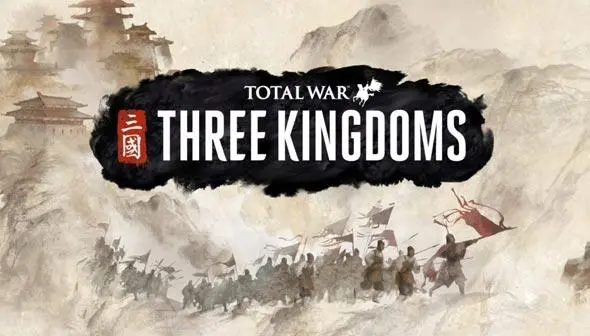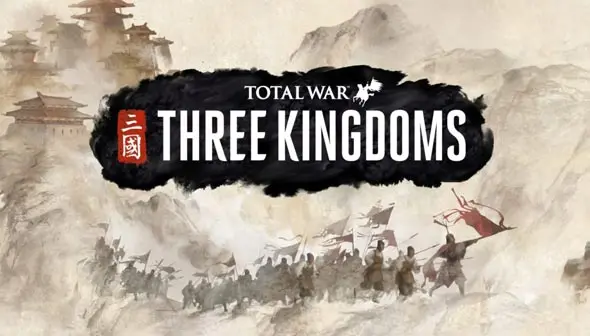Total War: Three Kingdoms, strategy in the China of legends

Creative Assembly had us accustomed to a very credible approach to history on the strategy games of the Total War series. A solid historical background has been the base of all of the elements that have given form to their games over the years. From the units in the armies to many of the combat mechanics and the detailed scenarios, one could get immersed in perfect recreations of massive historical battles and truly feel like a general commanding troops on the battlefield. There were some doubts about the direction that the franchise was taking when Total War: Warhammer came out first. Those came mainly from the fact that nobody could guess if the change to a fantasy setting would affect the franchise, but time has proven that the adaptation of Games Workshop's tabletop game was a very good idea given the success of the game. Total War: Three Kingdoms is the next step for Creative Assembly, and once more it´s headed in a different and quite interesting direction. This new installment of the Total War series will take us to ancient China during the Thre Kingdoms period. It's the year 190 AD, and the fall of the once glorious Han dynasty is followed by uncertainty and turmoil, with several factions trying to rise to power in a conflict that will decide the future of China. Each of those factions is led by a warlord that will be the center of the most character-driven Total War title up to date.
The game offers a new type of blend between historical accuracy and a fantasy setting based on the novel Romance of the Three Kingdoms, and it does it with two different game modes that will allow players to experience the best of both worlds. Romance mode puts a heavy emphasis on individual heroes. In fact, you won´t choose a starting faction but a hero instead. You will then use him to recruit more generals, and each of those will have their own troops. The composition of your army will depend exclusively on what heroes you bring into battle. You can even command your hero separately, putting his extraordinaire abilities to the best use. This fact only gives more relevance than ever to the individuals and the dynamics between heroes, as they will not only affect your battles but also the kind of actions you can perform on the campaign map and the bonuses you get. Being aware of the heroes' abilities and traits will be more decisive than ever before if you want to pave your way to victory and be the next one to unify and rule China.
On Records mode, based on the historical text Records of the Three Kingdoms, the quasi-divine powers of the mighty heroes are removed, and they can no longer be commanded as individual units. This alone allows the player to experience the game in a new, different way, one that feels more similar to the classic Total War games.
In the end, Total War: Three Kingdoms manages to deliver a great turn-based strategy experience, full of epic battles with legendary heroes, that can be played however you choose. Whether you are into historical battles in ancient China or prefer a fantastic romanticized story, Total War: Three Kingdoms will be your game of choice.
Best deals for Total War Three Kingdoms

- Official website : Total War Three Kingdoms
- Categories : Action, Strategy, Real-Time Strategy
- Editor : Sega
- Developer : Creative Assembly
- Mode(s) : Solo, Multiplayer, Co-op
- Release date : 23 May 2019
- Same Franchise
-
 1645.08₹Total War Warhammer TrilogyDriffle
1645.08₹Total War Warhammer TrilogyDriffle -
 389.50₹Total War PHARAOHG2A
389.50₹Total War PHARAOHG2A -
 849.00₹Total War WARHAMMER 3 Shadows of ChangeSteam
849.00₹Total War WARHAMMER 3 Shadows of ChangeSteam -
 849.00₹Total War WARHAMMER 3 Forge of the Chaos DwarfsSteam
849.00₹Total War WARHAMMER 3 Forge of the Chaos DwarfsSteam -
 499.00₹TW Warhammer III Champions of ChaosSteam
499.00₹TW Warhammer III Champions of ChaosSteam
- Also Published By Sega
-
2064.88₹SHINOBI Art of VengeanceGreenmanGaming
-
4589.68₹Demon Slayer Kimetsu no Yaiba The Hinokami Chronicles 2GreenmanGaming
-
1999.00₹Two Point MuseumSteam
-
 1665.00₹Like a Dragon Pirate Yakuza in Hawaii Deluxe Edition UpgradeSteam
1665.00₹Like a Dragon Pirate Yakuza in Hawaii Deluxe Edition UpgradeSteam -
3099.39₹Like a Dragon Pirate Yakuza in HawaiiK4G
- You may also like
-
2913.00₹Double Dragon ReviveSteam
-
2064.88₹SHINOBI Art of VengeanceGreenmanGaming
